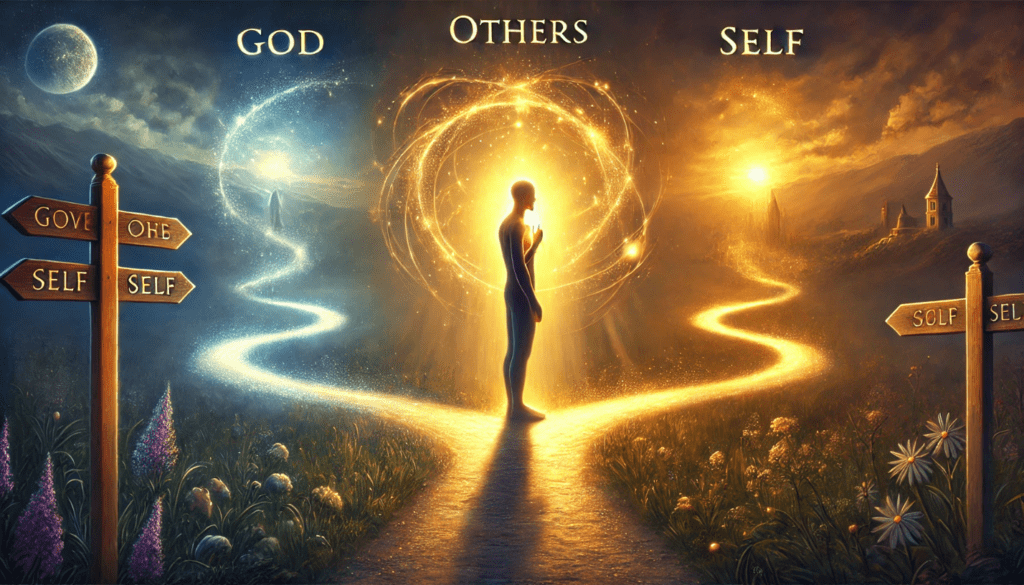Several years ago, when I first began actively serving in Christian ministry, I attended a youth camp that emphasized a simple yet profound phrase:
“God first, others second, self-last.”
This motto was ingrained into every aspect of our time there. It was the foundation of our lessons, the framework for our service, and the mantra we were encouraged to live by. At the time, it made perfect sense. Selflessness was the goal, humility was the virtue, and service was the highest calling.
I carried that phrase with me for years, using it as a measuring stick for my choices. When I felt tired, I pushed myself to keep serving. When I had my own needs, I convinced myself they came last. After all, wasn’t that the path of true discipleship?
But over time, I started noticing cracks in its application.
A Necessary Shift in Perspective
The phrase resurfaced in my mind while participating in a book club discussion on the book Worthy by Jamie Kern Lima. As we explored themes of self-worth, priorities, and balance, I questioned the rigid hierarchy I’d once accepted without hesitation. Had there been times when putting God first, others second, and myself last didn’t quite fit?
The answer came quickly: Yes.
Life is full of urgent moments where the prescribed order simply doesn’t work. Consider a firefighter responding to a burning building. He doesn’t stop to pray before pulling someone from the flames—he acts. A surgeon doesn’t pause to consider how their actions affect others before making a life-saving incision—they operate. A parent doesn’t hesitate to save their child from danger—they intervene.
In these moments, the priority shifts. Sometimes, self first, others second, and God last is not just practical—it’s necessary. There are times when taking immediate action is the only way to protect life, property, and even faith itself.
Yet, the more I reflected, the more I saw a deeper truth.
Beyond the Hierarchy: Finding Alignment
The problem wasn’t the phrase itself—it was the idea that it applied absolutely in every situation. Life is too complex for rigid formulas. What if, instead of asking who should come first, I asked a different set of questions?
Before making decisions, I started pausing to ask:
- What would the Father have me do?
- How does this affect those around me?
- What should be my reply?
This shift changed everything. Instead of following a strict hierarchy, I began seeking alignment. When I allowed these questions to guide me, I found that my choices naturally fell into place—not out of obligation, but out of wisdom.
The Power of Pausing
One of the greatest lessons I’ve learned is the power of pausing before making a decision. It doesn’t take long—just a few moments of reflection. But in those moments, I can feel something greater at work.
When I pause, I find clarity.
When I pause, I find wisdom.
When I pause, I find the still, small voice leading me toward choices that are good for me and those around me—and even for the planet as a whole.
It’s no longer about forcing a structure onto every decision but about tuning in and listening.
A New Perspective on “God First”
I haven’t abandoned the phrase “God first, others second, self last.” Instead, I’ve learned to apply it with discernment. In quiet moments of decision-making, it serves as a guide. In moments of crisis, I trust my instincts and act. And in all things, I seek alignment over hierarchy.
Perhaps it was never about who comes first.
Perhaps it was always about how we choose to move forward.
When we learn to ask the right questions, we open ourselves to something greater decisions rooted in love, wisdom, and truth.
And in that, we find the true weight of those three words.

